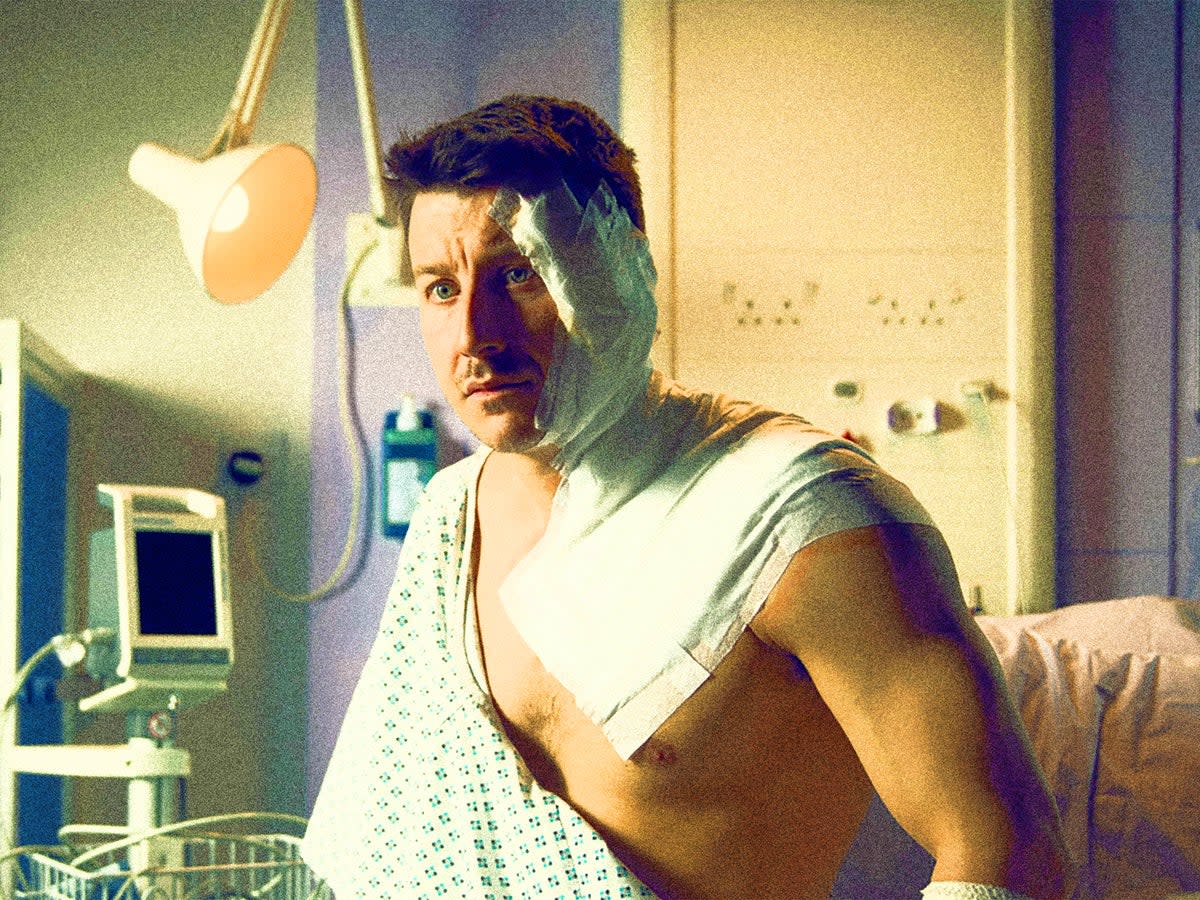‘I felt like I was melting’: Acid attacks are on the rise – could a Coronation Street storyline about them save lives?

Adele Bellis was waiting for a bus when she had acid thrown over her. She was 22 years old at the time. The man who did it had been paid by her ex-boyfriend, who said he wanted to stop her being attractive to other men. Bellis ran into the road as the corrosive substance burnt through her clothes. “I felt like I was melting to the ground,” she tells me today, nine years after her attack. “I remember looking down and my bra was melted. All my clothes were burnt and stuck to me.” Bellis’s ex received a life sentence, her attacker two years in jail, reduced from a 14-year sentence. She was left partially bald and lost her right ear.
When she went to hospital for treatment on the day of her attack, Bellis was one of four people being treated for acid burns. Alarmingly, the UK has the highest rate of acid attacks in the world, and in 2021 there were more than 420 reported incidents of its kind, according to Acid Survivors Trust International (ASTI). Those statistics also inspired the writers of Coronation Street, which this week launched a storyline in which a character, Ben Thompson’s Ryan, is left permanently scarred in an acid attack.
Monday night’s episode, in which the attack occurred, made for harrowing viewing. Fans have watched in recent months as Charlotte Jordan’s character Daisy Midgeley was stalked and harassed by delivery driver Justin (Andrew Still). On her wedding day, Daisy is attacked by Justin while he’s armed with a corrosive substance. His plan goes awry, however, when Ryan – who is working as Daisy’s wedding driver – gets caught in the crossfire and burnt in the face. Viewers saw the acid eat through Ryan’s clothes as he writhed on the ground in agony.
While the show has faced some criticism over the storyline, specifically claims made by Twitter users that its subject matter is “too dark” for a pre-watershed audience, those behind the show tell me that the storyline was introduced to raise awareness of an increasingly frequent method of violence. Globally, acid attacks disproportionately affect women, and are often linked to domestic violence and motivated by a desire to permanently alter a woman’s appearance. In the UK, however, men are more likely to be harmed in acid attacks. “We always approach these stories with utmost seriousness,” says Corrie producer Iain MacLeod. “Not least because many thousands of people in our audience have been through it themselves. We want to make sure that we’re not doing a disservice to their real-life experiences of survivors.”
Special care was taken as to how much of Ryan’s face was shown in the attack, too. “You want to portray the reality of it, but not to the extent that it becomes voyeuristic or gratuitous,” MacLeod adds. “We used obscured shots so that you could see the redness and the burn, but it was not overly shocking or too gory for a pre-watershed audience.”
At one point in the episode, Daisy drags Ryan into the shower and uses water to try and wash the corrosive substance off his skin. She then finds a pair of scissors and cuts his corroded clothes off of him. “We were also keen to show the proper way to triage somebody who’s been subjected to a burn of this type,” explains MacLeod. “The burns need to be irrigated with water as much as possible, and the shower was the obvious way to do that.” The team also worked extensively with charities to put the storyline together, notably the ASTI and the Katie Piper Foundation. Piper, a popular TV personality, was attacked by a man hired by her ex-boyfriend, and she set up her foundation to support adult survivors of burns while in recovery.
I always say that it’s worse than murder sometimes, because the survivors have got to live with the effects
Reflecting on the shower scene, Bellis hopes members of the public will take note of how to respond if they see someone who’s been attacked. “Nobody knew what to do when it happened to me,” she says. “Someone threw water over me when it happened but it wasn’t enough water, so it just made the reaction worse and my hair went up in smoke. We need to show members of the public what to do because people don’t know.”
In the event of an attack, the NHS advises reporting the incident by dialling 999, removing contaminated clothing carefully and rinsing the skin immediately using running water. This advice is freely available online, but doctors and survivors have both urged for lessons in schools on acid attacks and how to deal with them, particularly amid the rise in attack rates.
As the Corrie storyline continues into the coming weeks and months, viewers will see Ryan confront his facial disfigurement and experience social isolation, with people beginning to treat him differently. Bellis recalls similar experiences. “I was a 22-year-old woman with all these scars, I had lost my hair and had my head shaved,” she says. “I remember looking in the mirror and feeling like I had lost my identity.” It wasn’t until she visited a treatment centre in France and was left completely alone in a room that she finally processed what had happened to her. “I always say that it’s worse than murder sometimes, because the survivors have got to live with the effects. It’s a life-changing injury. Like today, it’s nine years since I got attacked and I’m on my way to the hospital for more surgery. It’s a constant thing I have to deal with.”
She also expresses some anxiety about the future response to the Corrie story. “It’s great to raise awareness but they really need to show deterrents as well to stop people from doing it in the first place,” she says. She tells me she hopes that future episodes will show the repercussions of Justin’s actions, and ideally that he’ll receive a long prison sentence. “People need to be put off from doing things like this.”

Ian Kershaw, who wrote Monday night’s episode, hopes that the storyline will also help destigmatise facial differences in society. “When I was a kid in the Seventies, you would stop and look,” he says, explaining that people often tended to gawp at others who have burns or scarring on their skin. “It would be nice to have somebody with a facial disfigurement in our living rooms three times a week and for Ryan to become part of the fabric of our world and just to normalise it.”
MacLeod adds that the storyline will end up showing Ryan “learning to love himself and accepting his new appearance”. This resonates with Bellis when I tell her about it. “I would never wish for the acid attack,” she says. “But I would never change my scars now.”
‘Coronation Street’ is broadcast by ITV at 8pm on Mondays, Wednesdays and Fridays
If you or someone you know is experiencing domestic abuse, you can call the 24-hour National Domestic Abuse Helpline, run by Refuge, on 0808 2000 247, or visit their website here.

 Yahoo Movies
Yahoo Movies 
